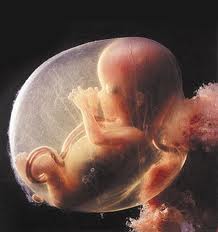
Early life is a critical window of host-microbe metabolic interaction. The seeding of the intestinal microbiota begins at birth, and a stable microbial community is important for a well-functioning immune system and metabolism. Low dose antibiotic exposure has been shown in experimental conditions to alter host metabolism and adiposity. A paper in the August 14 edition of Cell has shown that low dose penicillin (LDP) limited to early life temporarily disturbs the microbiota, which is sufficient to induce sustained effects on body composition. This would suggest that microbiota interactions in infancy may be critical for determining host metabolic effects, including enhancing the effect of high-fat diet induced obesity. Although such a study would be important to replicate in humans, these data show evidence that early life microbe-host interactions are closely linked with metabolism. Disrupting these interactions with often well-meaning antibiotic treatments may establish longer-term metabolic and immunologic complications.











